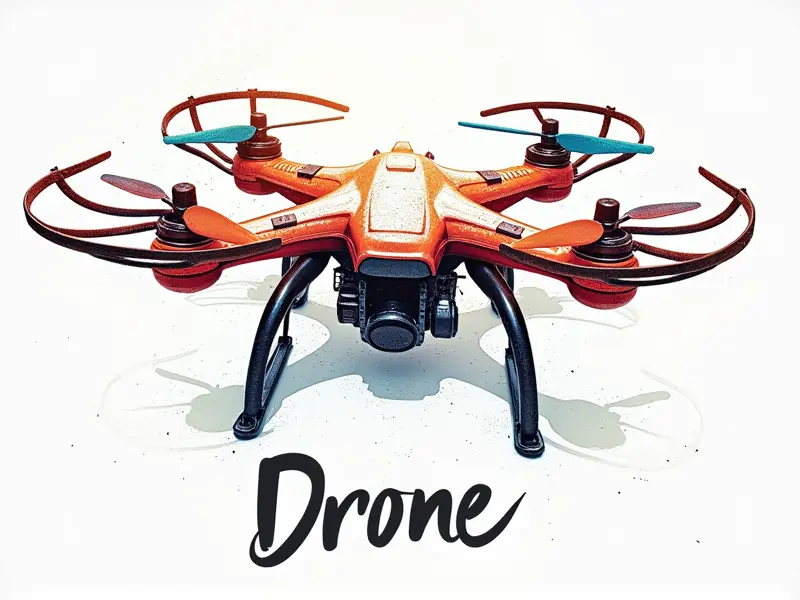Can I use a drone commercially?

If you're considering using drones for work, whether it's photography, surveying, or any other professional application, understanding the legalities and regulations is crucial. This article will guide you through everything you need to know about commercial drone operations.
Is It Legal to Fly Drones for Work?
The legality of flying drones commercially depends on several factors, including your location and the specific use case. In the United States, the Federal Aviation Administration (FAA) regulates all aspects of unmanned aircraft systems (UAS), commonly known as drones.
Can You Use Drones Professionally?
Yes, you can use drones professionally if you comply with FAA regulations and obtain the necessary certifications. Professional drone operators must adhere to strict guidelines to ensure safety and compliance with federal laws.
Commercial Drone Operations Explained
Commercial drone operations involve using unmanned aircraft for business purposes such as aerial photography, surveying land, inspecting infrastructure, or delivering goods. These activities require a specific set of rules and certifications.
How to Legally Use Drones for Business
- Obtain a Remote Pilot Certificate: You must pass the FAA Part 107 exam to become a certified remote pilot.
- Airspace Authorization: Obtain airspace authorization through the FAA's Low Altitude Authorization and Notification Capability (LAANC) system for flights below 400 feet.
- Waivers: Apply for waivers if you need to operate outside standard Part 107 regulations, such as flying at night or over people.
Navigating Commercial Drone Regulations
The FAA's rules for commercial drone operations are detailed and comprehensive. Here’s a breakdown of the key points:
FAA Rules for Commercial Drones
- No-Operation Zones: Avoid flying in restricted airspace, near airports, or over sensitive areas like military bases.
- Visual Line-of-Sight (VLOS): Maintain visual contact with the drone at all times during flight.
- Daylight Operations: Fly only during daylight hours unless you have a waiver for night operations.
- Airspace Authorization: Use LAANC to get real-time airspace authorization for flights below 400 feet.
Can You Earn Money with Your Drone?
Yes, you can earn money using your drone commercially. Many businesses and individuals hire professional drone operators for various services such as:
- Aerial Photography: Capture stunning images from the sky.
- Surveying Land: Conduct accurate land surveys for construction projects.
- Infrastructure Inspection: Inspect bridges, towers, and other structures safely and efficiently.
Rules for Commercial Drone Operations
To operate a drone commercially, you must follow strict rules to ensure safety and compliance. Here are some essential guidelines:
Flying Drones for Profit: The Rules
- Remote Pilot Certification: Obtain the FAA Part 107 Remote Pilot Certificate.
- Airspace Authorization: Get real-time airspace authorization through LAANC.
- Waivers and Exemptions: Apply for waivers if you need to operate outside standard regulations.
Starting a Drone-Based Business Legally
To start a drone-based business legally, follow these steps:
FAA Rules for Commercial Drones
- Education and Training: Learn about FAA regulations and best practices.
- Certification: Pass the Part 107 exam to become a certified remote pilot.
- Airspace Authorization: Obtain real-time airspace authorization through LAANC.
FAA Rules for Commercial Drones
The FAA's regulations are designed to ensure safety and compliance. Here’s an overview of the key rules:
- No-Operation Zones: Avoid flying in restricted airspace, near airports, or over sensitive areas.
- VLOS Operations: Maintain visual contact with the drone at all times during flight.
- Daylight and Weather Conditions: Fly only during daylight hours and under favorable weather conditions.
Legalities of Commercial Drones
The legal landscape for commercial drones is complex but manageable with the right knowledge. Here are some key points to consider:
- Licensing Requirements: Obtain a Remote Pilot Certificate from the FAA.
- Airspace Authorization: Use LAANC for real-time airspace authorization.
- Data Privacy and Security: Ensure compliance with data protection laws when collecting information using drones.
Conclusion
Flying a drone commercially requires adherence to strict regulations, but the rewards can be significant. By obtaining the necessary certifications, understanding airspace rules, and following best practices, you can legally operate your drone for business purposes and unlock new opportunities in various industries.

